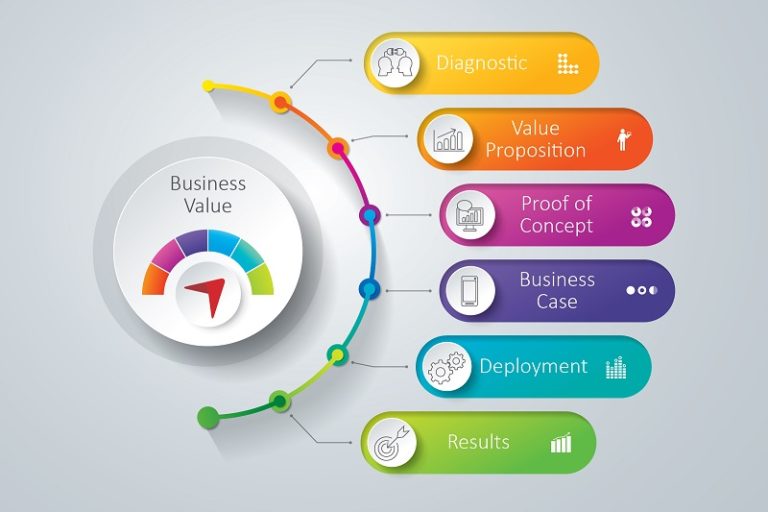When it involves 3PL warehousing in melbourne , one size certainly doesn’t fit everything. Each industry has distinct requirements, and specialized warehousing systems can significantly impact streamlining processes, lowering expenses, and increasing client loyalty. This blog will examine how personalized warehousing services help numerous sectors and why organizations should modify their logistics strategy.
Why Personalization Counts
Before delving into specific sector advantages, it’s critical to grasp the importance of personalization in warehousing. Every sector has unique demands for storing, handling, legal compliance, and delivery. Companies can improve productivity, decrease trash, and improve profitability by adapting warehouse solutions to their requirements.
Retail Industry: Increasing Adaptability and Speed
The retail industry is distinguished by significant stock turnover and the requirement for prompt, precise fulfilment of orders. Tailored warehousing solutions for retail frequently feature comprehensive inventory management solutions that give immediate inventory access. These technologies assist shops in keeping up with changing demand and seasonal patterns, guaranteeing that bestseller goods remain in stock.
Furthermore, retail organizations gain from technologies such as zone picking and cross-documenting, which simplify the selection and packing operations and shorten the time items remain in the warehouse. Companies that adjust these procedures to particular retail requirements can greatly enhance fulfilment times and satisfy clients.
Healthcare Industry: Achieving Conformity and Security
The healthcare industry has strict requirements for handling and storing medical equipment and drugs. Tailored warehouse solutions for this industry prioritize maintaining sufficient temperature control systems, assuring product traceability, and meeting regulatory criteria.
For example, pharmaceutical warehouses must follow Good Distribution Practices (GDP) and Good Manufacturing Practices (GMP). This practice entails deploying specialized devices such as chilled storage units and setting up stringent inventory tracking procedures. Healthcare organizations can guarantee product security and effectiveness by developing warehouse solutions to satisfy these requirements.
Food and Beverage Industry: Keeping Integrity and Newness
The food and beverage business highly values the product’s quality and authenticity. Tailored warehousing solutions for this industry frequently involve temperature-controlled preservation, humidity management, and particular handling processes to avoid damage and deterioration.
For example, a warehouse that stores fresh food must preserve particular environmental conditions to preserve the pristine goods. Furthermore, using first-in, first-out (FIFO) inventory systems guarantees that existing inventory is consumed before new arrivals, which reduces wastage. These personalized solutions assist food and beverage companies in meeting stringent health regulations while providing exceptional products to clients.
E-commerce Industry: Growing with Demand
E-commerce enterprises face variable requests, particularly during high periods such as vacations and sales promotions. Versatility and adaptability are key features of custom e-commerce warehouse systems. This system frequently comprises scalable storage structures that may be expanded when necessary and automatic picking devices capable of effectively managing large order quantities.
Furthermore, e-commerce enterprises profit from interconnected warehouse management systems (WMS) linked to their internet-based stores. This interface enables immediate stock revisions, correct order monitoring, and quick return processes. Modifying such options allows e-commerce enterprises to offer their clients a smooth purchasing experience.
Manufacturing Industry: Streamlined Production Assistance
Manufacturing facilities depend on an ongoing supply of essential components and the prompt distribution of completed items. Just-in-time (JIT) inventory systems are frequently used in tailored warehousing solutions for the industrial industry, ensuring that products are accessible precisely when required lowering storage expenses and decreasing wastage.
Manufacturers also profit from systems such as installing and assembling solutions, which allow warehouse workers to pre-assemble parts before they enter the manufacturing line. This assembly accelerates the production procedure and ensures it operates appropriately without interruption. Adapting these procedures to meet the particular requirements of the manufacturing industry can result in substantial productivity benefits.
Technology Industry: Safeguarding Precious Products
The technology company operates with precious, usually delicate, things that must be handled carefully and stored securely. Tailored warehouse solutions for technology organizations involve improved safety, temperature regulation, and static-resistant storage spaces to preserve delicate parts.
Furthermore, technological organizations frequently need comprehensive inventory control to avoid losses and maintain a supply of essential parts. Employing customized approaches such as barcode scanning and RFID tagging aids in the maintenance of precise records of inventory while lowering the danger of damage or loss. These specialized solutions guarantee that precious technological goods remain securely and readily accessible when required.
Automotive Industry: Handling Complexity and Accuracy
The automobile sector requires the organization and oversight of a wide range of elements, from tiny bits to massive systems. Customized warehousing solutions for automotive firms are designed to manage such complexity precisely. It involves customized storage for different components, kitting solutions for pre-assembled components kits, and complex inventory management systems that monitor parts along the entire supply chain.
Furthermore, using Automated Guided Vehicles (AGVs) and robotics can speed up the transport of bulky objects while reducing laborious tasks. These customized options guarantee that car suppliers and manufacturers can efficiently handle stocks and achieve delivery dates.
Apparel Industry: Managing Varying Stock
The garment sector works with an extensive variety of goods, encompassing various sizes, colours, and designs. This sector’s specialized warehousing technologies are designed to correctly organize and manage its variety. It involves hanging garments on sophisticated racking structures, adopting size and colour tagging for simple identification, and utilizing adaptable storage structures that adjust to shifting fashion patterns.
Furthermore, apparel warehouses frequently use modern packing and sorting technologies capable of handling many requests during periods of high demand. Adapting these options allows textile manufacturers to ensure quick and precise fulfilment of orders, hence increasing customer satisfaction.
Cold Storage Options: Addressing Industry Unique Needs
Numerous sectors, particularly pharmaceuticals, food and beverage, and biological sciences, need cold storage methods to ensure product reliability and quality. Tailored cold storage systems focus on preserving exact humidity and heat levels to guarantee items stay in their best state.
For example, biotechnology businesses may demand extremely low-temperature preservation for specific samples, but food manufacturers must adhere to rigorous temperature restrictions to avoid rotting. Tailored cold storage systems incorporate actual-time monitoring of temperatures, standby electrical systems, and unique handling methods to fulfil these particular requirements.
The Bottom Line
Customized 3PL warehousing solutions provide significant advantages throughout sectors by solving their specific difficulties and needs. Whether it’s guaranteeing conformity in healthcare, keeping fresh in food and beverage, or expanding operations in online shopping, bespoke solutions assist organizations in optimizing their warehouse processes.
Companies that acquire bespoke warehousing solutions can increase productivity, lower costs, and boost client loyalty. As each sector evolves, the value of specialized logistics tactics will only increase, which makes it critical for firms to change with the times in their storage processes.













